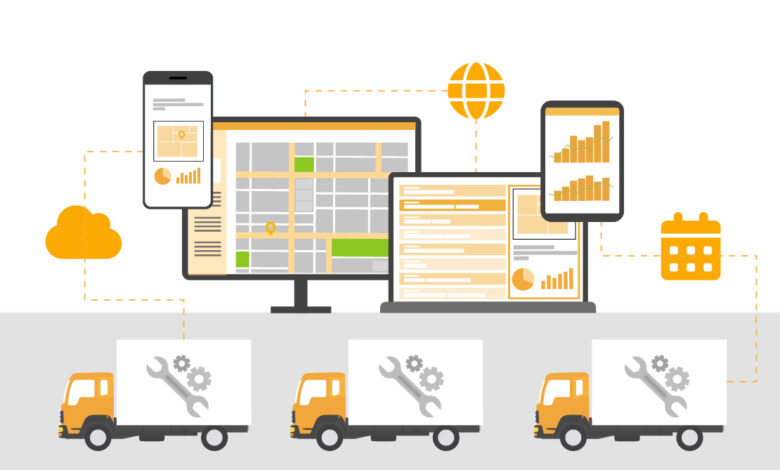Field Service Management Software: Optimize Operations and Improve Efficiency

Field Service Management software is designed to streamline and optimize the operations of businesses that manage field technicians and service delivery. It centralizes appointment scheduling, work order tracking, technician management, and customer communication into a single platform, improving efficiency and response times. This software is essential for organizations looking to increase productivity while maintaining high service quality.
By integrating features like real-time tracking, inventory management, and automated workflows, FSM software helps companies reduce manual tasks and errors. It supports better decision-making through comprehensive data and analytics, making it easier to manage resources and meet customer expectations consistently.
With numerous solutions available in 2025, businesses can find FSM software tailored to their size, industry, and specific needs. The right software not only enhances team coordination but also boosts customer satisfaction by ensuring timely and effective service delivery.
Key Features of Field Service Management Software
Field service management software streamlines operations by managing work orders, optimizing schedules, enabling technician mobility, and tracking inventory. These features improve technician efficiency, reduce downtime, and enhance customer service.
Work Order Management
Work order management is fundamental to organizing and tracking service requests. It allows businesses to create, assign, and monitor tasks from initiation to completion. This feature ensures that all necessary job details—such as customer information, service requirements, and status updates—are recorded and accessible in real time.
Effective work order management includes digital work order creation, automated updates, and integration with billing systems. This reduces paperwork and manual errors. It also helps prioritize urgent tasks and allocate resources efficiently, enabling faster response times and improved customer satisfaction.
Scheduling and Dispatching
Scheduling and dispatching features coordinate field technicians based on availability, skill sets, and location. Automated scheduling tools help assign the right technician to the right job, minimizing travel time and enhancing productivity.
Dispatching modules typically provide a visual calendar or map interface, making it easier for managers to adjust schedules dynamically. Real-time notifications ensure technicians receive instant job updates. This reduces delays and allows quick responses to emergencies or cancellations.
Mobile Access
Mobile access gives technicians on-site connectivity through smartphones or tablets. This feature allows them to receive assignments, update job statuses, and access customer data instantly without returning to the office.
Mobile apps often include GPS tracking, photo capture, digital signature collection, and offline functionality. This improves field communication, increases accuracy of data entry, and speeds up invoicing. Mobile access also supports remote troubleshooting and customer collaboration.
Inventory Control
Inventory control tracks parts and supplies needed for service tasks to avoid shortages and overstocking. It provides real-time visibility into inventory levels, locations, and usage history.
An effective inventory system integrates with work orders, automatically updating stock based on technician consumption. Alerts for low stock and reorder points prevent delays caused by missing materials. Inventory control minimizes costs by optimizing stock levels and ensuring timely replenishment.
Benefits of Implementing Field Service Management Software
Field service management software streamlines key business processes, improves communication, and optimizes resource use. It enables companies to manage field operations more effectively, resulting in measurable improvements across several areas.
Operational Efficiency
Field service management software optimizes scheduling and dispatch by using real-time data and automated tools. This reduces delays and ensures the right technician is assigned to each job based on skills, location, and availability. Automated workflows minimize manual tasks such as paperwork, allowing staff to focus on high-priority activities.
Technicians receive up-to-date job details and access customer history on mobile devices, improving accuracy and response time. Centralized communication links office teams and field workers, reducing miscommunication and streamlining operations. The software also tracks inventory and assets, facilitating timely maintenance and preventing shortages.
Customer Satisfaction
Implementing FSM software enhances customer experience by improving service speed and reliability. Automated appointment reminders and real-time updates keep customers informed about technician arrival times and job status. Accurate job tracking and documentation result in fewer errors and faster resolution of issues.
Customers benefit from technicians who arrive prepared with complete work order details and the necessary parts or equipment. The software’s ability to capture customer feedback and analyze service patterns supports ongoing quality improvements. Overall, this leads to increased trust and loyalty.
Cost Reduction
FSM software reduces operational costs by minimizing manual labor and lowering travel expenses through optimized routes. Accurate scheduling prevents overstaffing or underutilization, controlling labor costs. Digital invoicing and streamlined billing processes reduce administrative overhead and improve cash flow.
By tracking assets and equipment in real-time, businesses can plan preventive maintenance, avoiding expensive repairs and downtime. Additionally, better inventory management reduces waste and ensures necessary parts are available when needed, further cutting unnecessary expenses.



